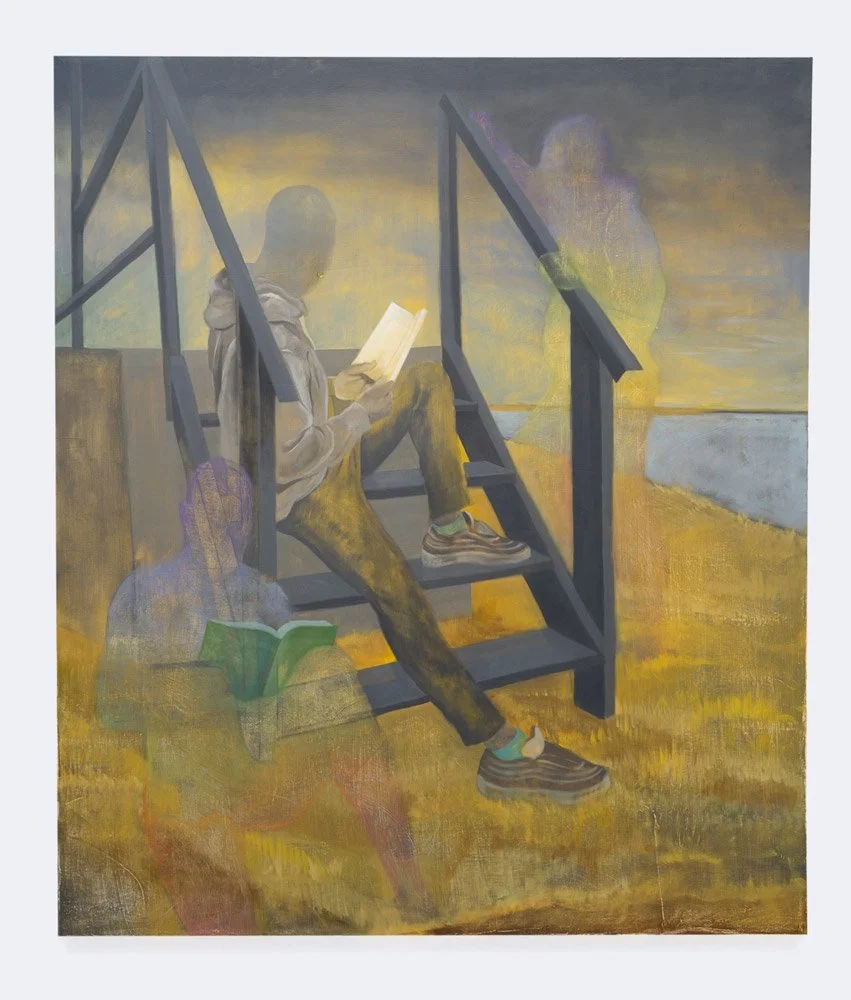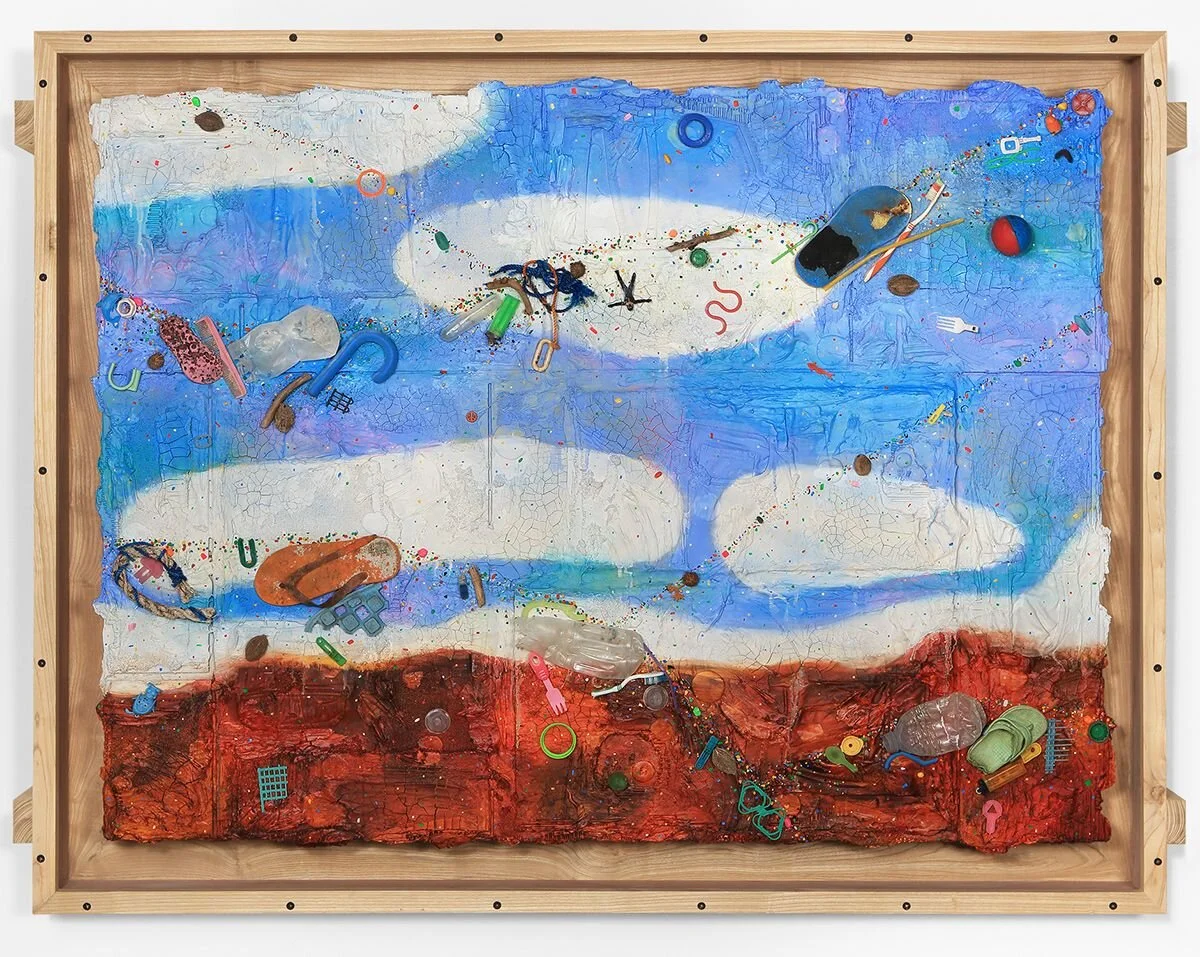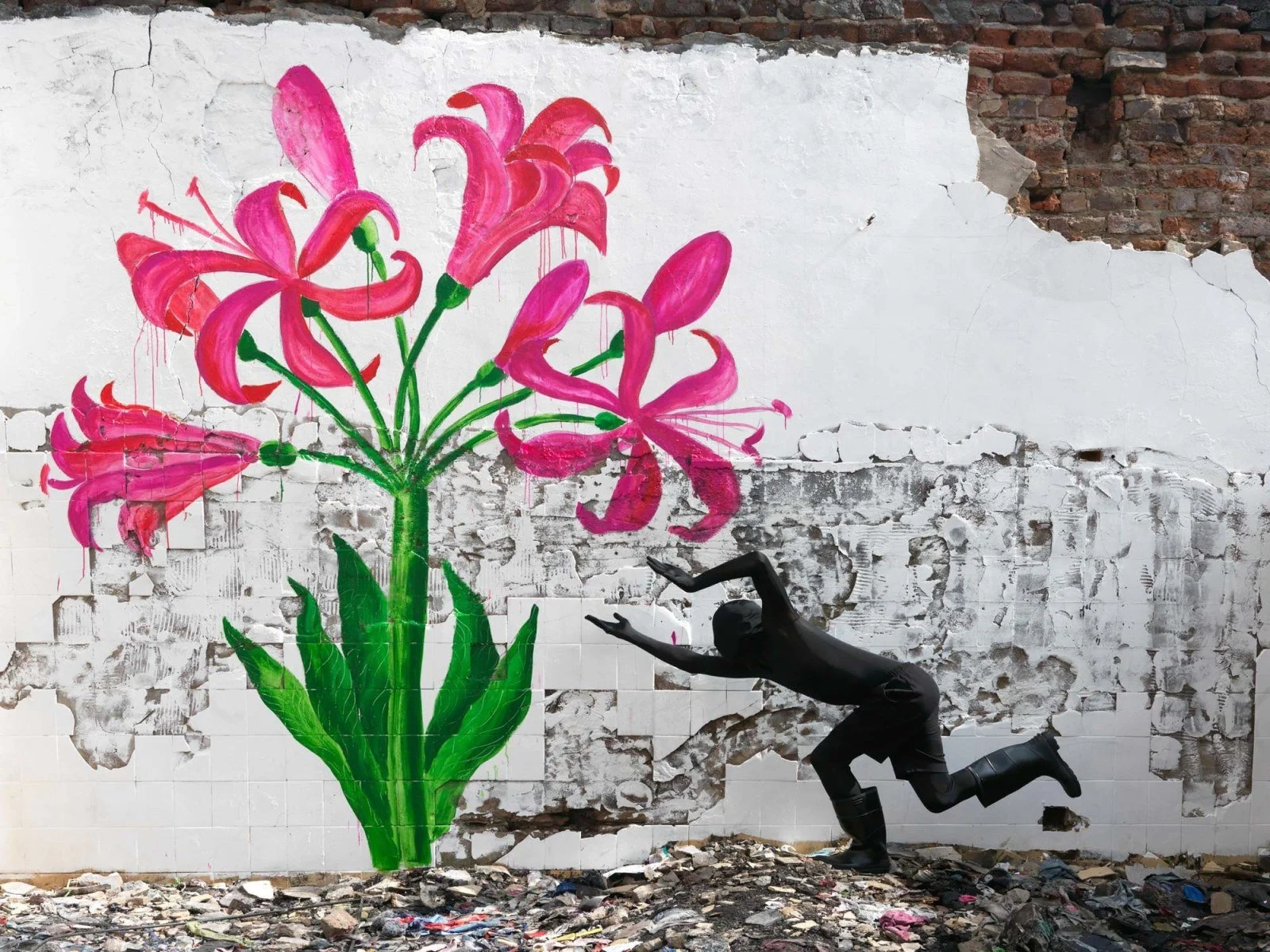Dominic Chambers
“Soft Shadows”
New York, W 24th Street
Born in St. Louis, MO (1993) and currently based in New Haven, CT, Chambers creates vibrant paintings that deftly combine an exploration of the modes, conventions, and traditional themes of art history with contemporary concerns around race and identity. The artist’s most recent bodies of work feature images of friends, family members, and acquaintances engaged in acts of leisure and contemplation, set in vividly colored environments that border on the ethereal. A writer as well as an artist, Chambers draws inspiration as much from art historical models as from literature–particularly Magical Realism and the writing of W.E.B. Du Bois. Many of his compositions incorporate Fabulist elements, including ghostly silhouettes meant to be stand-ins for the artist, and lush, surreal landscapes that feel at once familiar yet uncanny. Comprised of the artist’s newest paintings, Soft Shadows marks Lehmann Maupin’s first exhibition with Chambers, who joined the gallery’s program in 2021.
DOMINIC CHAMBERS Shadow Work (Chapters), 2022 Oil on linen 70 x 80 inches 177.8 x 203.2 cm
Fundamentally interested in how art can function as a mechanism for understanding, recontextualizing, or renegotiating one’s relationship to the world, Chambers sees painting as a critical and intellectual endeavor as much as an aesthetic one. Recent series have focused on representations of Black leisure, with Chambers depicting many of his subjects reading or lost in thought, their gaze fixed far outside the frame. “Too often, the Black body has been located in our imaginations as one incapable of rest,” Chambers explains, “often when we imagine what the Black body is doing it is usually an act of labor, rebellion, or resistance.” In series like After Albers and Primary Magic, Chambers seeks to remove these associations, portraying his figures in moments of reflection or reverie, meditative and serene. Color, and especially our physical experience of it, also plays a crucial role in Chambers’ work. The artist has described color as a protagonist in his paintings that is as critical to understanding their meaning as their subject matter. With an eye to the Unione mode of the High Renaissance, Chambers strives to create harmony and balance throughout his compositions while retaining enough tension and interplay between contrasting colors to give each painting a subtle charge.
Best known for his highly saturated canvases imbued with rich tones of blue, green, red, and yellow, Soft Shadows evinces a subtle shift in Chambers’ work. Pulling from personal and imagined narratives, the artist depicts a myriad of activities—from engagement with books to dancing with one’s own shadow—rendered in tones of black, white, and grey, set against bright washes of color or punctuated by strategic glimmers of prismatic light. Part of his recent Shadow Work series, in these paintings Chambers considers ways in which light and shadow are negotiated both formally and conceptually. Throughout the series he makes overt reference to iconic paintings from across art history, reinvigorating and reinterpreting some of its most famous images with particular attention to the racialized connotations of illumination. Taken together, the Shadow Work paintings represent the most recent development in the artist's profound interest in the interrogation of art history and his rigorous exploration of color theory and its relationship to race.







